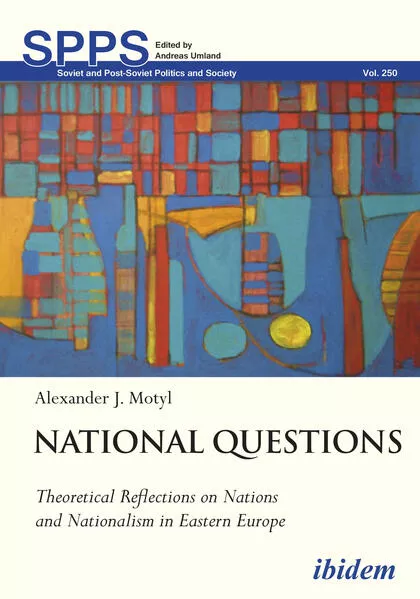
- Publikationen ca: 1
- Fragen & Antworten
Alexander Motyl
Alexander J. Motyl (PhD, Columbia University 1984) is Professor of Political Sci¬ence at Rutgers University – Newark, New Jersey. He served as Associate Director of The Harriman Institute at Columbia University in 1992–1998. He is author of Ukraine vs. Russia (Westphalia Press 2017), Pidsumky imperiy (Krytyka 2009), Puti imperii (Moskovskaia shkola politicheskikh issledovanii 2004), Imperial Ends (Columbia University Press 2001), Revolutions, Nations, Empires (Columbia University Press 1999), Dilemmas of Independence (Council on Foreign Relations 1993), Sovietology, Rationality, Nationality (Columbia University Press 1990), Will the Non-Russians Rebel? (Cornell University Press 1987), and The Turn to the Right (East European Monographs 1980); as well as the editor of over ten volumes, including The Encyclopedia of Nationalism (Elsevier 2000). Motyl is co-editor, together with Bohdan Klid, of The Holodomor Reader (CIUS Press 2012) and, together with Ksenya Kiebuzinski, of The Great West Ukrainian Prison Massacre of 1941 (Amsterdam University Press 2016). His articles have been published in, among other outlets, Foreign Affairs, Foreign Policy, Harvard Ukrainian Studies, Comparative Politics, Slavic Review, Communist and Post-Communist Studies, Nationalities Papers, Problems of Post-Communism, Internationale Politik, and Osteuropa. Motyl was the 2019 Laureate of the Omelian and Tatiana Antonovych Foundation Award. In 2020, the website AcademicInfluence.com ranked Motyl sixth among the world-wide “Top Ten Most Influential Political Scientists Today.”
National Questions: Theoretical Reflections on Nations and Nationalism in Eastern Europe
Combining social science with the multi-disciplinarity of area studies, Alexander Motyl discusses in fifteen essays the malleability and modernity of national identity, the attractions and limits of social constructivist imaginings of nations, the impact of national discourses, binary morality, and historical narratives on interpretations of the Holocaust and the Holodomor, the relationship between liberalism, nationalism, and fascism, and the role of national identity and nationalism in Eastern Europe in general and the Soviet Union, Ukraine, and Russia in particular.
